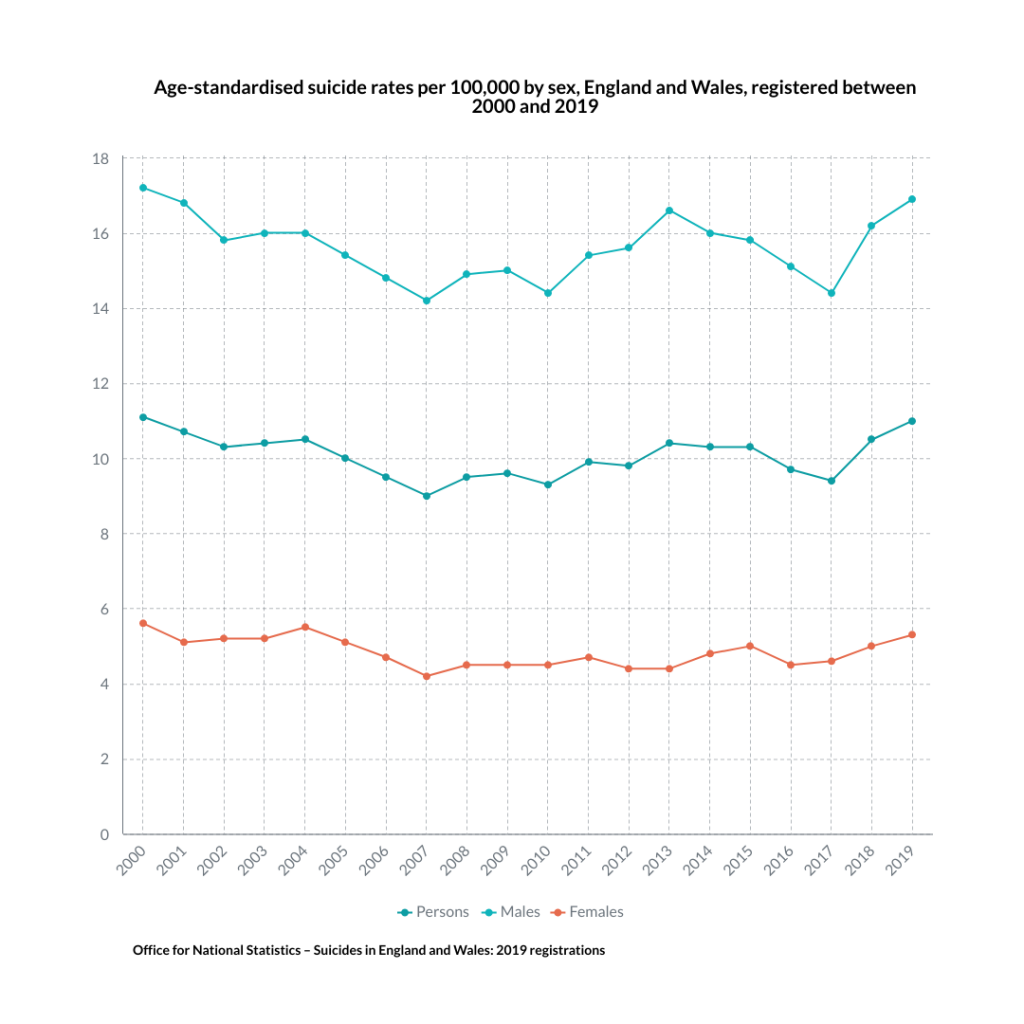Every 40 seconds someone dies by suicide, and for every death, there are an estimated 20 attempts that follow.
In a world currently consumed by Coronavirus, we should be asking ourselves why there hasn’t been such an outcry toward the silent pandemic of suicide?
Close to 800,000 people globally per annum make the decision to take their own lives, with these numbers rapidly increasing.
In England alone, one in six people report a common mental health issue each week.
It took the UK until 2018 for then prime minister Theresa May to appoint the countries first ever minister for suicide prevention.
MM spoke with a police liaison practitioner (PLP) who wishes to remain anonymous.
PLPs were introduced after the 2014 Mental Health Crisis Care Concordat which ensures that organisations such as the police, health and social care departments and others work together to aid those in crisis.
The particular PLP we spoke to has seen many cases relating to suicide over the past 30 years of being a registered mental health nurse.
There is an array of different reasons for suicide, and several of these being recent recessions, unemployment, austerity measures and loneliness.
And research undertaken by the Samaritans agree that socio-economic status is a leading cause.
Provisional data from the Office of National Statistics show there were 11.3 suicide deaths per 100,000 people in Quarter 4 (Oct to Dec) 2019 in England.

With suicide, unfortunately, being the single biggest killer of men under the age of 45.
“I think the law unfairly treats men and the fact that men don’t speak out or admit when they’re feeling vulnerable can cause a lot of problems,” says the PLP.
There are many stigmatisations surrounding men having to be ‘tough’ and able to provide for their families.
This is where organisations such as Andy’s Man Club come into effect, aiming to create a safe space where men can openly talk about their mental health without the fear of being judged.
However, suicides relating to drug and alcohol misuse has been a big part of this PLPs career.
She said: “Throughout my whole career its always been the biggest cause, and with them (drugs & alcohol) you get impulsivity and deaths by misadventure. Also, the bi-effects of people being absolutely skint because of it.”
“Men are more likely to suffer from untreated depression due to reluctance to see their GP and some self-medicate to ‘treat’ themselves with drugs, and most commonly alcohol.”
The risk of suicide is said to be as much as eight times greater when the abuse of alcohol is present.
“If I’m totally honest I’d say maybe 20-25% of the suicides I’ve seen are due to being clinically mentally ill.”
Substance abuse can cause impulsivity and exacerbate low mood, increasing the risk of suicide.
However, these issues can be present regardless of age, sex and lifestyle.
In 2014 it was found that 27% of all female suicides were linked to addiction, compared to 15% in males.
Increasing suicides in younger children and teens is also becoming more of a worrying concern.
Among those aged between 15 and 19 years, suicide was the second leading cause of death among girls and the third leading cause of death in boys.
“The way in which people are bullied has changed, there’s always been bullies but recently it’s gotten a lot more severe,” the PLP said.
“Now I think there’s competitiveness, kids and teens can feel so isolated if they haven’t got the latest things.”
It’s important now more than ever, that children are able to access mental health services and know where to reach out.
The text crisis line (SHOUT to 85258) provides people across the UK with the first ever 24/7 texting service, a huge improvement in aiding those who feel like they can’t pick up the phone.
“Over the past 38 years, there has actually been quite a lot of improvement, but there is always room for more,” the PLP added.
“In respect of having resources like 24-hour crisis teams, people can now access help at any time, which wasn’t always the case”
As a society are slowly becoming more aware of mental health and suicide, due to the increase and severity of the rates.
However, it is only a matter of time before we start to see a much larger increase in the mental health crisis.
It’s time we start to act on the phrases of “be kind” and “it’s okay to talk”.
Suicide can affect anyone at any given time, there is no immunity.
Zero Suicide Alliance offers free suicide awareness training and how to approach someone who may be struggling https://www.zerosuicidealliance.com/training
If you are experiencing suicidal thoughts and are at immediate risk call 999 or go to your nearest A&E.
If you are in need of support the Samaritans are available 24 hours a day, 7 days a week at 116 123 or you can also email [email protected]



